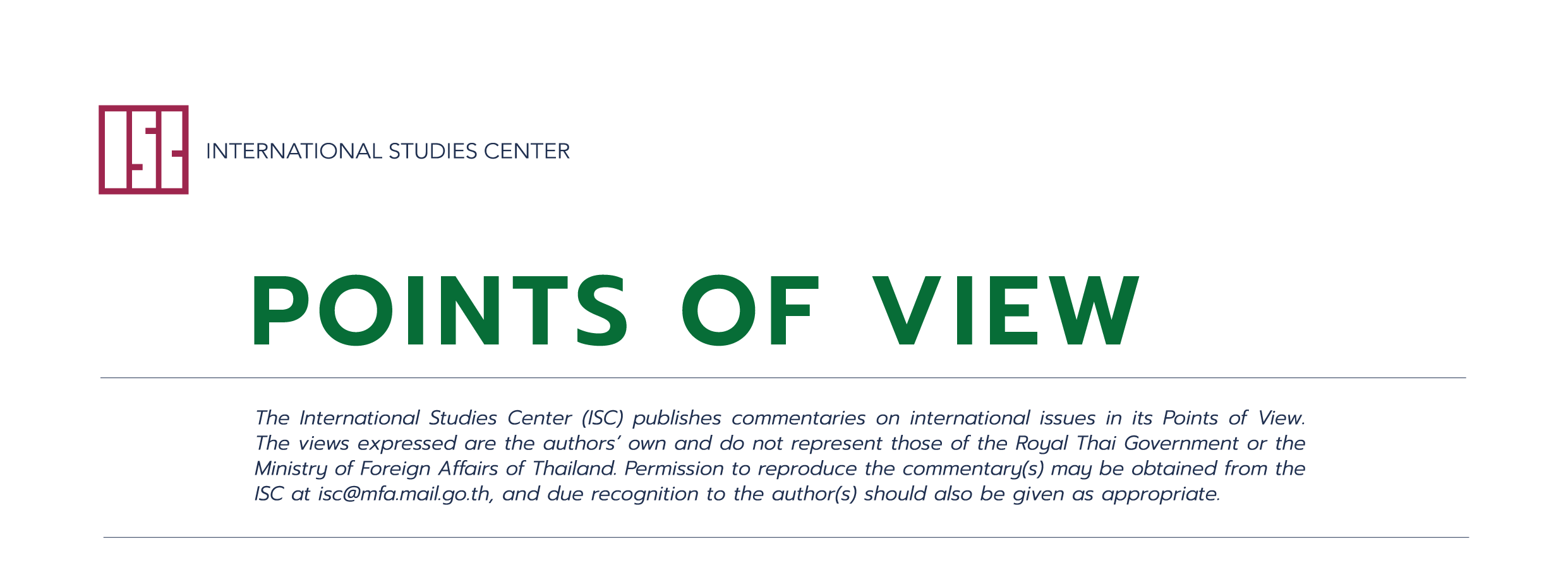Biden's Democracy Summit: Promoting made-in-America democracy as foreign policy | Prapee Apichatsakol
Biden's Democracy Summit: Promoting made-in-America democracy as foreign policy | Prapee Apichatsakol
วันที่นำเข้าข้อมูล 17 Dec 2021
วันที่ปรับปรุงข้อมูล 14 Dec 2022
 |
No. 9/2021 | December 2021
Biden's Democracy Summit: Promoting made-in-America democracy as foreign policy
Prapee Apichatsakol*
(Download .pdf below)
This past week, President Biden launched his Summit for Democracy, which connected political leaders from around the world in an attempt to strengthen American style democracy worldwide, but we cannot say that this kind of democracy is necessarily the very best fit for every culture or country in the world. Nor can we say that some countries that do not qualify as ‘democratic’ under this definition, are not already proceeding with their own kind of effective management of their issues in a democratic manner.
To begin with, the main gists of this summit were: strengthening democracy, defending against authoritarianism, fighting corruption and promoting respect for human rights. It seems to me that Biden delivered his speech like a lesson in a large classroom, where the participants from 110 nations listened to him lecturing on the merits of American democratic values which are rooted in the history of the United States, and right now, these values have become Biden’s top foreign policy.
Next, we must understand that American democracy is one of the core values of their country, which includes elements such as rule of law, liberty, equality, human rights and individual freedom of expression. America is idealist, and always sets high standards for their nation, and its people believe they can clearly see their country’s problems and easily solve them. Americans use these ideals to rule their country, and expect other countries to follow their blueprint of what ‘proper democracy’ should be, but these standards are challenging to live up to and unique to the American nation. Some countries in the world might want some form of democracy, but not the US version.
Right now, the U.S. wants to play the traditional role of nurturing global democracy and human rights worldwide again and also needs democratic alliances. As you can see from this summit, Biden said he wanted to bring back democratic values but it actually seemed as if the summit was attempting to kill two birds with one stone. First, showcasing and promoting this American style democracy and the intentions behind United States foreign policy, while at the same time dividing countries around the world based on American values, and to single out those countries still under non-democratic rule.
Without a doubt, we should try to understand the reason that the U.S. needs to spread their democracy, human rights and international peace. In such a shared world of democracy, this serves their interests by helping to advance their security and also creates better economic partners for U.S. trade and investments by providing better conditions for American overseas investment.
Moreover, promoting democracy should create a harmonious and non-violent peaceful world, and may lead to reduce conflicts and war. This would be good for international affairs, would eliminate military threats and also enhance the national security of the U.S. Imagine if countries such as Russia and China were to become more democratic. The U.S. could then enjoy more mutual cooperation and less potential conflict because these countries would share the same mindset.
Returning to Asian culture, they prefer flexibility and the ability to compromise, choosing harmony and collective consensus over the adversity and confrontation that is inherent in Western cultures. When problem solving in Asian communities, freedom of silence is preferred over freedom of speech, and the mindset of allowing time to digest the issues that need solving, takes precedence over the need to externally verbalise everything.
What is Asian style democracy? In Asian culture, the democracy has a very different form. The core values suggest that a country should be ruled by a strong decisive government, preferring to encourage community and collective needs over individual freedoms. Today in much of Asia, Asian-style democracy is becoming a fusion of traditional Asian values, authoritarian components, and also some democratic elements, as leaders seek a system that is more appropriate to the particular needs of their country. However, this attempt to integrate Western democracy with their cultures has proved difficult.
As we can see from the Association of Southeast Asian Nations (ASEAN), while this organisation is trying hard to encourage its member countries to follow democratic forms of governance, emphasizing rule of law and supporting fundamental human rights, some countries still remain under authoritarian government and cannot meet criteria of Western democracy.
Thailand also has its own alternative democracy; we want democracy but maybe different from the West. This transition to be more democratic in Thailand has not been smooth, but the country is now closer to a democratic system. In the long term, we need to redevelop our governance to fit all of Thailand’s needs, strengthen democracy, human rights and the rule of law. We suggest that the Thai government continue to implement these elements, because this makes Thailand more attractive and legitimate in the eyes of the rest of the world. In spite of the challenges, can we reinvent our policies and still respect Thai values?
[*] Assistant Professor, Department of Political Science, Srinakharinwirot University and Vice President of American Studies Association of Thailand